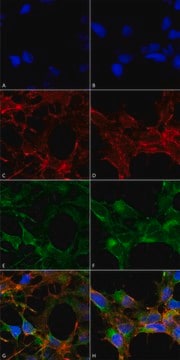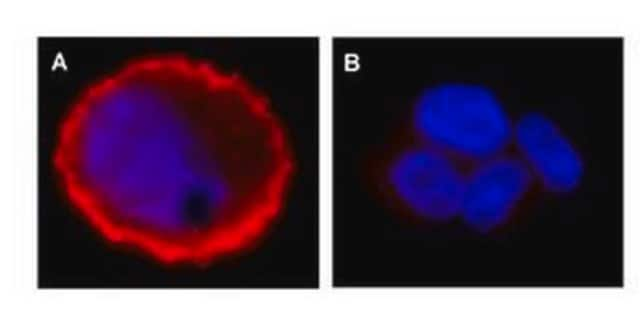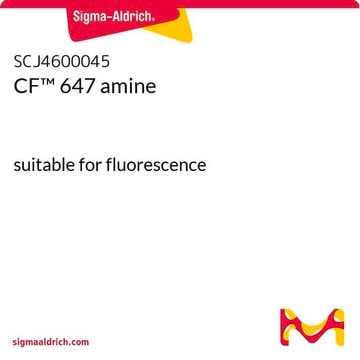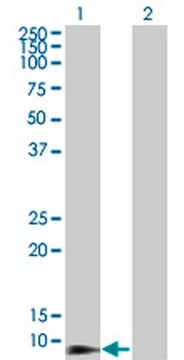AB17003
Anti-Bim Antibody, internal epitope, pan-Bim isoforms
Chemicon®, from rabbit
Sinónimos:
BOD
About This Item
Productos recomendados
biological source
rabbit
Quality Level
antibody form
affinity purified immunoglobulin
antibody product type
primary antibodies
clone
polyclonal
species reactivity
mouse, human, rat
manufacturer/tradename
Chemicon®
technique(s)
western blot: suitable
UniProt accession no.
shipped in
wet ice
target post-translational modification
unmodified
Gene Information
human ... TMBIM4(51643)
Specificity
Immunogen
Application
Apoptosis & Cancer
BCL2 & Inhibition
Human K562 cell lysate can be used as a positive control and a 23 kDa band can be detected.
Optimal working dilutions must be determined by end user.
Target description
Physical form
Storage and Stability
Analysis Note
Skin/Skin Tumor
Other Notes
Legal Information
Disclaimer
¿No encuentra el producto adecuado?
Pruebe nuestro Herramienta de selección de productos.
Optional
Storage Class
10 - Combustible liquids
wgk_germany
WGK 2
flash_point_f
Not applicable
flash_point_c
Not applicable
Certificados de análisis (COA)
Busque Certificados de análisis (COA) introduciendo el número de lote del producto. Los números de lote se encuentran en la etiqueta del producto después de las palabras «Lot» o «Batch»
¿Ya tiene este producto?
Encuentre la documentación para los productos que ha comprado recientemente en la Biblioteca de documentos.
Nuestro equipo de científicos tiene experiencia en todas las áreas de investigación: Ciencias de la vida, Ciencia de los materiales, Síntesis química, Cromatografía, Analítica y muchas otras.
Póngase en contacto con el Servicio técnico







